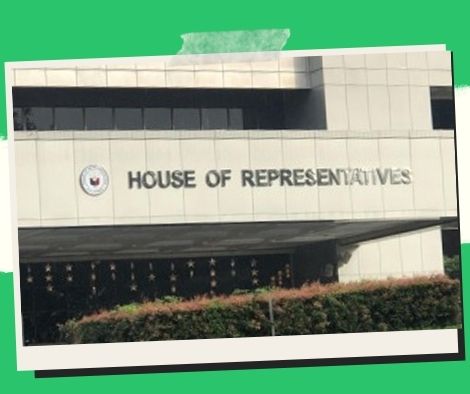
House committee approves tertiary equivalency program bill
The Expanded Tertiary Education Equivalency and Accreditation Program (ETEEAP) institutionalization measure failed to pass the committee in the House of Representatives.
House Bill 5728, which aims to strengthen the system of academic equivalency and validation of the knowledge and expertise derived by individuals from relevant work experiences and high-level, non-formal training to harness their full potential, was approved during the hearing on Monday by the House Committee on Higher and Technical Education, which is chaired by Rep. Mark Go of Baguio City.
Reps from the TINGOG party list wrote the legislation. Jude Acidre as well as Yedda Marie Romualdez.
In his address as a sponsor, Acidre stated that Executive Order 330, which was signed by then-President Fidel V. Ramos, was the reason the ETEEAP was first implemented in 1996.
He explained that the ETEEAP is an education evaluation program that takes into account the information, skills, and prior learning that people have acquired through informal and informal training as well as relevant work experiences.
According to Acidre, a person may receive a diploma for a degree through this program following a competency-based evaluation from a recognized assessment system using written tests, interviews, skills demonstrations, portfolios, and other innovative assessment methodologies given by designated assessors or faculty experts.
“There is a need to give people with demonstrated competence access to opportunities that will improve their chances of being accepted into the labor market, prepare them for higher-value jobs necessary for achieving global competitiveness, advance the strategic concerns of the government, and promote sustainable development,” he said.
The measure allows professionals with a total of five years or more of work experience to earn school credits by using the knowledge, experiences, accomplishments, and skills they have acquired through their employment. These credits are then subtracted from the total number of units or credits they must earn before graduating.
The following criteria must be met in order to be eligible for the program: The following requirements must be met: a) Filipino citizen, whether they reside in the Philippines or abroad; b) they must have at least five years of work experience; c) they must have a birth certificate issued by the Philippine Statistics Authority; d) they must be 23 years old or older; e) they must have a resume, curriculum vitae, or personal data sheet; f) they must have a properly completed ETEEAP application form; g) they must have a service record or employment
The proposed law shall be implemented under the direction of the Commission on Higher Education. Colleges and universities that want to use the ETEEAP in their academic curriculum must apply for accreditation from it.
Save/Share this story with QR CODE
Disclaimer
This article is for informational purposes only and does not constitute endorsement of any specific technologies or methodologies and financial advice or endorsement of any specific products or services.
📩 Need to get in touch?
📩 Feel free to Contact NextGenDay.com for comments, suggestions, reviews, or anything else.
We appreciate your reading. 😊Simple Ways To Say Thanks & Support Us:
1.) ❤️GIVE A TIP. Send a small donation thru Paypal😊❤️
Your DONATION will be used to fund and maintain NEXTGENDAY.com
Subscribers in the Philippines can make donations to mobile number 0917 906 3081, thru GCash.
3.) 🛒 BUY or SIGN UP to our AFFILIATE PARTNERS.
4.) 👍 Give this news article a THUMBS UP, and Leave a Comment (at Least Five Words).
AFFILIATE PARTNERS

World Class Nutritional Supplements - Buy Highest Quality Products, Purest Most Healthy Ingredients, Direct to your Door! Up to 90% OFF.
Join LiveGood Today - A company created to satisfy the world's most demanding leaders and entrepreneurs, with the best compensation plan today.



 Business Technology, Finance Technology & Information Technology
Business Technology, Finance Technology & Information Technology





